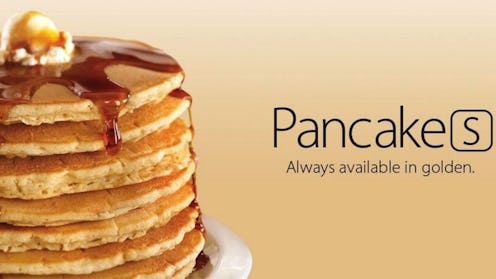News
Everyone's Making Fun Of The New iPhones

We spent months in eager, open-mouthed anticipation of the two — two! — brand-new iPhones.
Maybe cult leader (ahem, former CEO) Steve Jobs spoiled all of us into believing that Apple would change our lives radically each year. Or maybe, dare we say it, this new generation of iPhones is exactly as underwhelming as everybody's saying.
The main thread of criticism for the iPhone 5S is that it does nothing new, except sit more expensively in your back pocket. And as for the iPhone 5C — the neon, low-end version, primarily developed for the Eastern market — critics are raging that it's nothing like "low-cost," and doesn't offer any viable competition to smartphones in its price range. Plus, its colors are tacky and look like Crocs.
Wall Street got spooked, and Apple's stock price, which fluctuated throughout Tuesday's show-and-tell in Cupertino, took a serious hit. That's unusual: usually after Apple launches a product, stock takes a turn upwards before sinking, if they do at all. The ugly reception serves to prove, for the company's more vociferous critics, that Apple has lost its edge; that it doesn't know how to innovate without Jobs at the helm; and that it's clinging to its exclusive, high-cost reputation without the goods to back it up.
But let's remember that the iPad initially received a mixed critical reception, and went on to be one of Apple's best-sellers (not to mention spawned an entire industry of clones). Additionally, as Matt Buchanan points out in the New Yorker, the iPhone 5S and 5C could be mundane because the entire smartphone industry, popularized by Apple, has pretty much done everything already. Buchanan writes:
For the next few years, advances in smartphones and tablets will continue to be subtle and iterative, driven by the twin processes of simplification and connection. The advanced Touch ID fingerprint sensor built into the 5S’s home button, while a seemingly basic technology (it replaces your password with your thumbprint in a handful of very specific applications) is a perfectly representative feature. Today, it’s merely a convenience, since putting your thumb where it goes a hundred times a day anyway is less annoying than typing in a password. But it’s also a step closer to the day when we no longer have to remember or store dozens of passwords.
Ah, yes. The fingerprint sensor: the only innovative saving grace for Apple's 5S, and the only real step forward for the company. The fingerprint-recognition technology will soon find its way onto all of Apple's products, and henceforth most of the smart-gadget industry. (Mourn the "frape," friends: this is its death knell.) Ostensibly, it means that no-one – your mom, your prying significant other, a thief — can access your phone. But the addition to the standard-issue smartphone means more than that: it ushers in an age of biometrics, which analysts have been predicting for years.
What does the new technology mean for you? Well, if you buy an iPhone right now and get it a week from today, your information, and perhaps more importantly, your savings, will be more secure: you won't have to rely on a password, which according to PayPal's chief officer is a terrible way to stay protected. (People pick "poor passwords," he said, and "use them everywhere.") Since you can buy everything online these days (even a painting by Monet or lithograph by Matisse, if you so wish,) you'll soon being able to chuck out all of that pesky and unreliable entering of credit-card information — one press of a finger, and you're done. That's it. It's unhackable.
Except if someone chops off your finger, which was a viral concern for about a minute until someone pointed out that it has to be a warm, living finger to open the phone. Which we're glad to know.
Still, biometrics isn't a done deal yet: critics have pointed out that you can replicate a "fingerprint" with Play-Doh, not to mention advanced developments in hacking. So, what about the iPhones' other finer points, like the 5S' grand black backing replaced by an iPod-esque gray — or that "champagne" shade?
Nokia would get a point for that one, except for its glaring error in its last competitive (cough, bitter) tweet:
Well, no, Nokia. That would be the iPod, which did that years earlier.
Denny's promptly launched a new ad campaign on the back of the whole "what do you mean, gold?" thing.
And Motorola crossly announced that Apple was just "lazy" for introducing their fingerprint sensor. (Right, because you guys won't be launching your own next season, or anything.)
Oh, except that the new iPhones have advanced voice commands to rival Motorola's, too. Awkward.
And, from the Twitterverse:
Not to mention the one thing that no-one at Apple thought to amend.